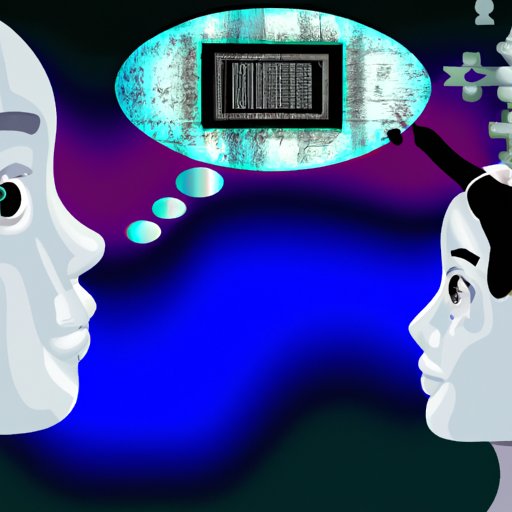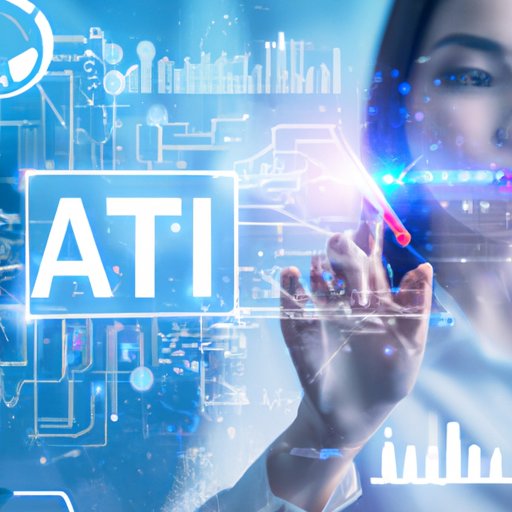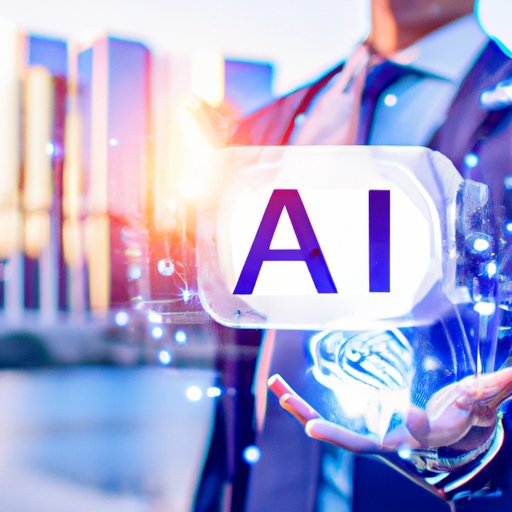Overview of AI Technology: Definition, Uses and Examples
Artificial Intelligence (AI) is a rapidly developing field of computer science that has the potential to revolutionize our lives. AI enables machines to think and act like humans, with the ability to learn, reason, and make decisions. AI technology is used across various industries and for a variety of purposes, from automating mundane tasks to enhancing customer service experiences. In this article, we will explore what AI technology is, its different types and examples, as well as its history, impact on society, applications in business, and potential benefits and challenges.
Definition of AI Technology
According to the Merriam-Webster dictionary, AI is “the capability of a machine to imitate intelligent human behavior”. AI technology is an umbrella term for a range of computer algorithms and techniques that enable machines to learn and understand data, identify patterns, and make decisions. AI technology can be used to automate processes, enhance customer service, improve decision-making, and more.
Types of AI Technologies
AI technology encompasses a wide range of different types, including machine learning, natural language processing, computer vision, robotics, and autonomous vehicles. Machine learning is a type of AI that enables computers to learn from data without being explicitly programmed. Natural language processing (NLP) is a branch of AI that deals with understanding and generating human language. Computer vision is a type of AI that enables computers to recognize objects and images. Robotics is a type of AI that focuses on designing and building robots that can interact with their environment. Autonomous vehicles are vehicles that use AI technology to navigate and operate without human intervention.
Examples of AI Technology
AI technology is used in many different areas, from healthcare to finance. For example, AI technology is used in healthcare to diagnose diseases and provide personalized treatments. AI is also used in finance to automate processes such as loan approvals and investment decisions. AI technology is also used in marketing to analyze customer data and create targeted advertisements. In addition, AI technology is used in autonomous vehicles to help them navigate and operate without human intervention.

History of Artificial Intelligence and Its Impact on Society
The concept of AI was first proposed by Alan Turing in 1950. Since then, AI technology has advanced significantly, with researchers making significant strides in the development of AI algorithms. In recent years, AI technology has become increasingly ubiquitous, with many businesses using AI to automate processes, enhance customer service, and improve decision-making.
The advances in AI technology have had a profound impact on society. AI technology has enabled us to automate mundane tasks, freeing up time for more creative pursuits. AI technology has also enabled businesses to provide better customer service, as well as improved decision-making capabilities. Furthermore, AI technology has enabled us to develop autonomous vehicles, which could potentially revolutionize the way we travel.

Exploring Different Types of AI Technologies and Their Applications
Machine Learning
Machine learning is a type of AI technology that enables computers to learn from data without being explicitly programmed. Machine learning algorithms are used to detect patterns in data and make predictions about future events. These algorithms are used in a wide range of applications, from fraud detection to facial recognition.
Natural Language Processing
Natural language processing (NLP) is a branch of AI that deals with understanding and generating human language. NLP algorithms are used in a variety of applications, from speech recognition to automated customer service. NLP algorithms are also used in search engines to understand user queries and return relevant results.
Computer Vision
Computer vision is a type of AI that enables computers to recognize objects and images. Computer vision algorithms are used in a wide range of applications, from facial recognition to autonomous vehicles. Computer vision algorithms are also used in medical imaging to detect abnormalities in images.
Robotics
Robotics is a type of AI that focuses on designing and building robots that can interact with their environment. Robotics algorithms are used to control robots and enable them to move, sense, and interact with their environment. Robotics algorithms are used in a variety of applications, from manufacturing to healthcare.
Autonomous Vehicles
Autonomous vehicles are vehicles that use AI technology to navigate and operate without human intervention. Autonomous vehicles use a combination of sensors, cameras, and AI algorithms to detect obstacles and plan a safe route. Autonomous vehicle algorithms are used in a variety of applications, from self-driving cars to delivery drones.

Understanding How AI Technology Is Used in Business
AI technology is increasingly being used in business for a variety of purposes, from automating mundane tasks to enhancing customer service experiences. AI technology can be used to automate processes, such as loan approvals and investment decisions. AI technology can also be used to enhance customer service experiences, such as providing personalized recommendations and responding to customer inquiries. In addition, AI technology can be used to improve decision-making, such as predicting customer demand and analyzing market trends.
Examining the Benefits and Challenges of AI Technology
AI technology has the potential to revolutionize our lives, but it also presents some potential challenges. The advantages of AI technology include increased efficiency, improved accuracy, and cost savings. AI technology can also be used to automate mundane tasks, freeing up time for more creative pursuits. However, there are also some potential drawbacks, such as privacy concerns and ethical considerations.
Analyzing the Regulatory Issues Surrounding AI Technology
As AI technology becomes more pervasive, there is an increasing need for regulation. There are several regulatory issues surrounding AI technology, including privacy concerns, ethical considerations, and the need for regulatory frameworks. Privacy concerns arise due to the amount of data that AI algorithms collect and process. Ethical considerations include ensuring that AI algorithms are not used to discriminate against certain groups. Finally, regulatory frameworks are needed to ensure that AI algorithms are used responsibly and ethically.
In conclusion, AI technology is a rapidly developing field of computer science that has the potential to revolutionize our lives. AI technology has a wide range of applications, from automating mundane tasks to enhancing customer service experiences. There are also potential benefits and challenges associated with AI technology, as well as regulatory issues that need to be addressed. As AI technology continues to evolve, it will be interesting to see how it will continue to shape our lives.
(Note: Is this article not meeting your expectations? Do you have knowledge or insights to share? Unlock new opportunities and expand your reach by joining our authors team. Click Registration to join us and share your expertise with our readers.)
